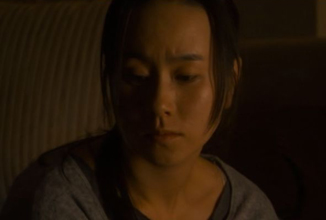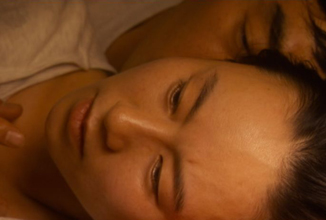"Touch the face of the Child Buddha inside...
The face will change in harmony with the person who touches it."
Synopsis:
Sun-hee (Park So-yeon) is an artist and children's book illustrator who is married to television anchorman (and utter perfectionist, to the point of obsession) Sang-hyup (Jeong Hee-tae). Though she can't put her finger on the exact reasons, Sun-hee knows that all is not right in her life, with her repeated dreams of the face of a Child Buddha, in the sand within a cave, underlining her subconscious need find a way to understand both herself and her place in the world.
On receiving a phone call from a woman claiming to be having an affair with Sang-hyup, Sun-hee is finally given the impetus she needs to begin a journey of self-discovery to find the person she really is, was and has become and, in doing so, to attempt to lay the scars of the past finally to rest...
Review:
We are, in essence, the sum of our experiences with the traumas each and every single one of us faces in the course of our journey through life playing a huge part in the shaping of who we are and ultimately become, but while some of those psychological wounds ever so slowly heal and even, perhaps, eventually disappear, others resolutely refuse to leave us be and instead fester in our subconscious, cutting deeper and more acutely with each passing day, week and year, leaving all too visible scars in their wake.
As we join Lim Woo-seong's second feature film, Scars, that is exactly the position Sun-hee - the film's main female character - finds herself in, even though she is, as yet, (outwardly at least) unaware of the fact.
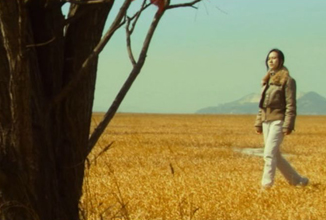 |
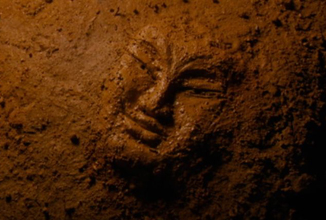 |
Sun-hee is fairly ill (the exact details of her ailment are neither discussed nor, in fact, necessary to proceedings or themes) but though those around her constantly berate her for not seeking medical help, she repeatedly claims to be "fine". However, while viewers would be forgiven for initially thinking her reasoning is simply a result of her fear of what a medical consultation might reveal, it speaks (to my mind, at least) of Sun-hee's determination to step away from the manner in which she has related and answered to the demands of others right from the days of her youth. There is a flashback scene (one of several) in Scars which shows Sun-hee as a child being pushed in her back by her mother, forcing her forward, and in the space of seconds we are brought face-to-face with the very hub of what led (or pushed, if you prefer) her to the become the present-day woman she is.
Regardless of her conscious efforts to change, early on in proceedings, she is nonetheless subconsciously haunted by the scars of her past to the extent that the phone call from Sang-hyup's lover harshly pushes her forward once again... and forward she has no option but to move.
Sun-hee's ultimate psychological destination is not for me to reveal, but on the appearance (to present-day Sun-hee) of her younger self in another of her dreams/visions - combined with the changing images of the Child Buddha’s face - viewers will be left in no doubt whatsoever as to her ultimate success or failure, and subsequently where her future is destined to lay.
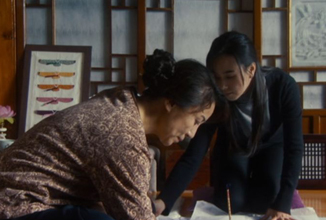 |
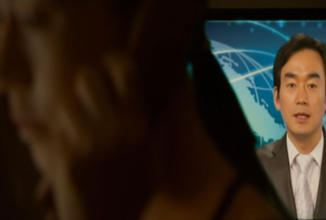 |
While Scars is, on the surface, a fairly straightforward story, its outward simplicity belies the plethora of layers it contains, with director Lim Woo-seong making every moment vital - whether those moments relate to major narrative events or simply consists of the tiniest movement in Sun-hee's facial expression.
Nothing, I repeat nothing, is unimportant or passing in Scars. From Sun-hee's tacit nature to Sang-hyup's perfectionist tendencies; to the Buddha appearing in Sun-hee's dreams as the face of a child (to my mind underlining Sun-hee relating to others as a mother to a child); to Sun-hee's 'vision' of touching the bare chest of a stranger, each and every reference present directly relates to the overall story, character arcs and the film's ultimate destination, but while there is (thankfully) little exposition and almost everything is gleaned from the nuances (mainly visual or implied) of the narrative, the film is easily accessible throughout nonetheless and never feels forced or in any way fake.
Not only that, but dark though Scars undeniably is, there is somewhat of a feeling of distant hope that pervades the narrative of Sun-hee's dreams, as the story builds, and the question ultimately becomes whether or not she will be able to find the subconscious place where that hope resides.
Scars is so stunningly conceived that it deftly works on two major levels, in parallel and simultaneously: While we watch Sun-hee's past wounds reopen and we accompany her on her journey to discover who she really is, we are almost guaranteed to have thoughts of our own scars brought firmly to the forefront of our minds.
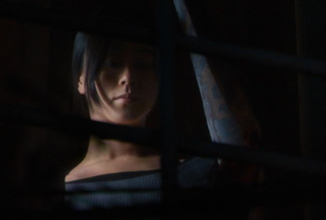 |
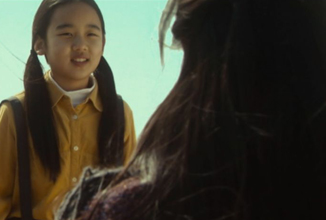 |
Cinematically, Scars is every bit as incredible as its multi-layered narrative warrants: The camera work is largely fixed (which fits well with scene settings), gently moving at a measured pace as and when required. Director Lim Woo-seong goes to great length to ensure that the direction matches not only proceedings but also the underlying themes, regularly accenting Sun-hee's unspoken feelings of constraint within the grander scheme of things - for example: Sun-hee, having discovered her husband's affair, sits on her couch as the camera slowly retreats down a hallway allowing the walls of the passageway to appear to visually close in on her; and her repeated framing in a shadow-covered, small-paned window serving to place her in a visual, and virtual, "prison".
This closed-in effect in her everyday life is starkly contrasted with the open expanses Sun-hee walks through in her dreams and this is further added to with the visual colour schemes used - muted in Sun-hee's everyday life while her dreams are full of bright, vibrant and utterly sumptuous imagery and scenic vistas.
Finally, the music (by Jeong Sang-hoon) presented in Scars wraps things up to a tee, gradually moving from mournful, melancholy single piano and guitar pieces to eventually contain almost dissonant elements, as Sun-hee's poignant tale reaches its climax.
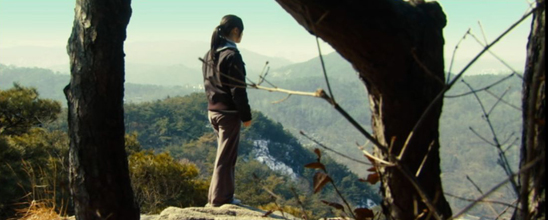 |
Cast:
Park So-yeon gives a superb, even mind-boggling, portrayal of Sun-hee. Her ability to show what's going on in her character's mind would be noteworthy in any event, but considering the fact that her spoken dialogue is minimal, her performance is all the more remarkable. In short, her acting ability combined with the depth of Sun-hee's characterisation served to make me almost feel as though I'd gotten to know a real person by the time the credits rolled.
Jeong Hee-tae, as Sang-hyup, also gives an accomplished performance, but his role really is (deliberately) a counterfoil to that of Sun-hee. As such, his portrayal can never hold a candle to Park So-yeon's, but that really is the way it should be.
The rest of the cast play largely supporting roles, but all perform admirably.
Summary:
Scars is a dark, in-depth, nuanced dissection of the wounds that make us who we are and the resultant scars that prevent us from becoming the people we want to be. A film that not only grippingly details one woman's journey of self-discovery but also almost guarantees to leave viewers with thoughts of the scars that have affected their own lives, whatever those scars may be.
Cast: Park So-yeon, Jeong Hee-tae, Yoon Ye-in, Suh Yeon-soo
Director: Lim Woo-seong
DVD:
The DVD used for this review is the Korean, Region 3, release from DM Media which has an anamorphic transfer presented with an aspect ratio of 2.35:1. The picture is clear throughout and is free of ghosting and image artifacts.
The sound is provided as Dolby Digital 2.0 and is crisp and clean, complimenting the nuances of the soundtrack well.
Excellent subtitles are provided
throughout the main feature.
DVD Details:
Actors: Park So-yeon, Jeong Hee-tae,
Directors: Lim Woo-seong
Format: Anamorphic, Colour, NTSC (single layer), Subtitled, Widescreen
Region: Region 3
Number of discs: 1
Classification: 15
Studio: DM Media
Run Time: 65 mins (approx.)
|


